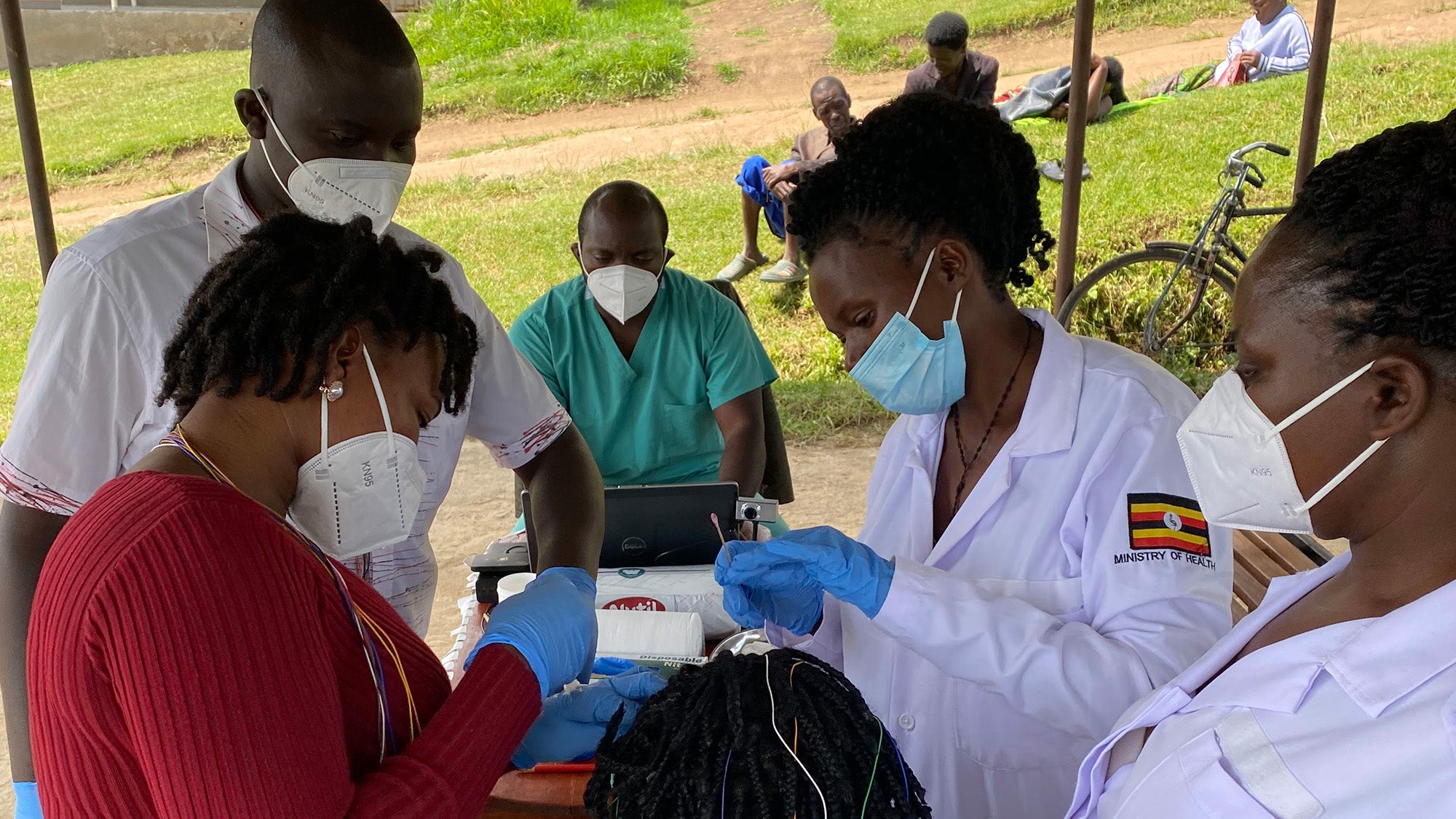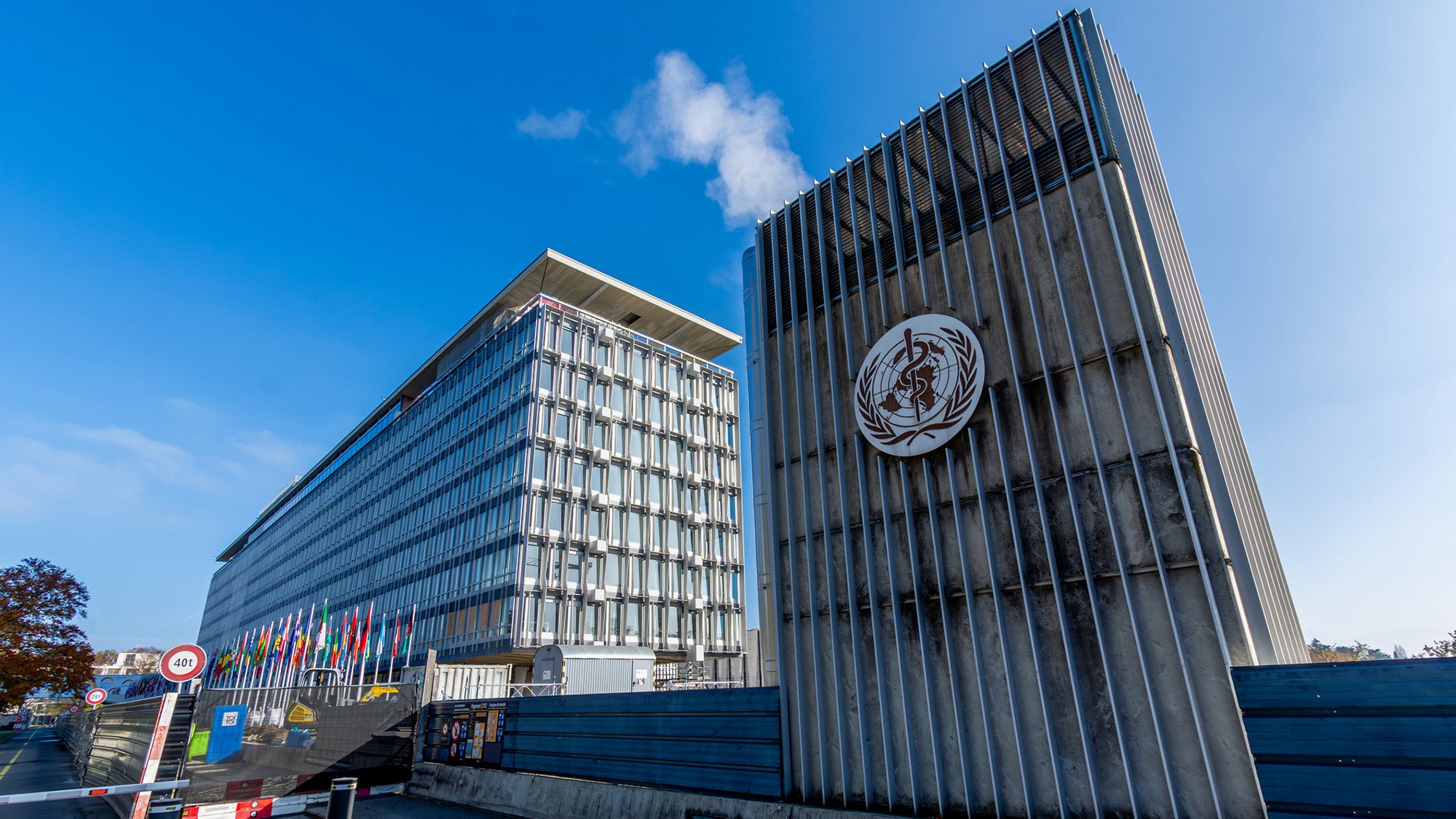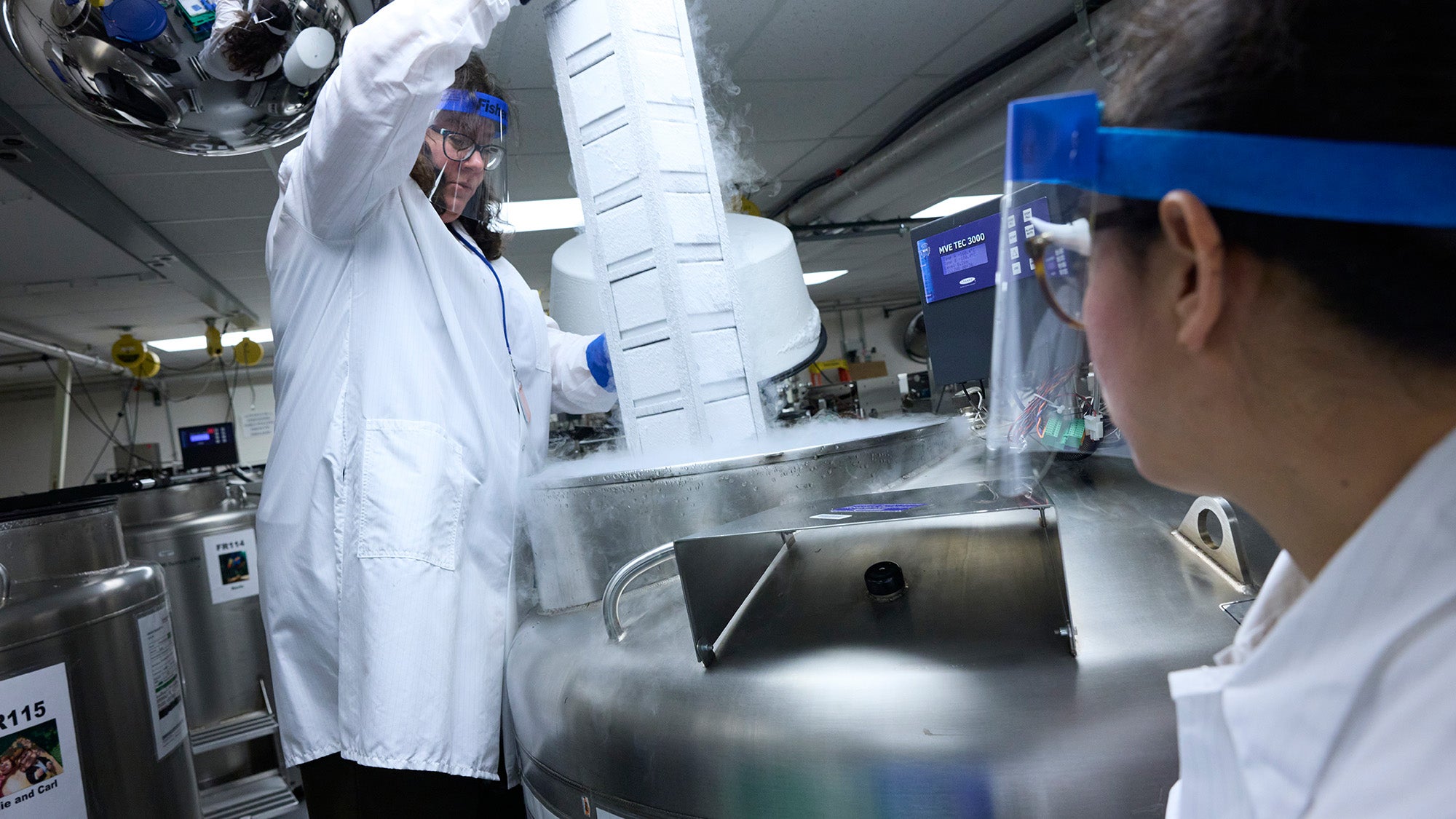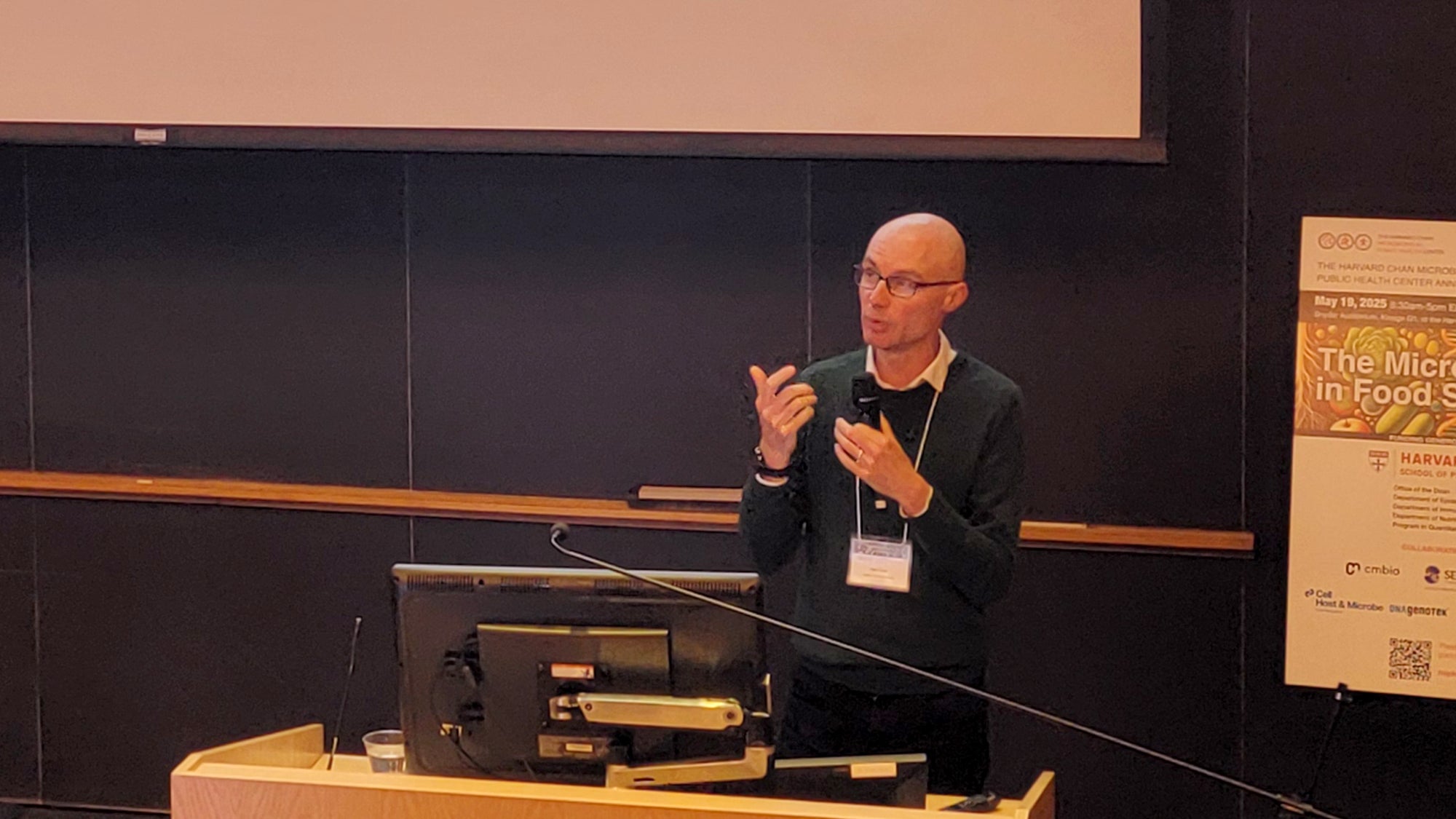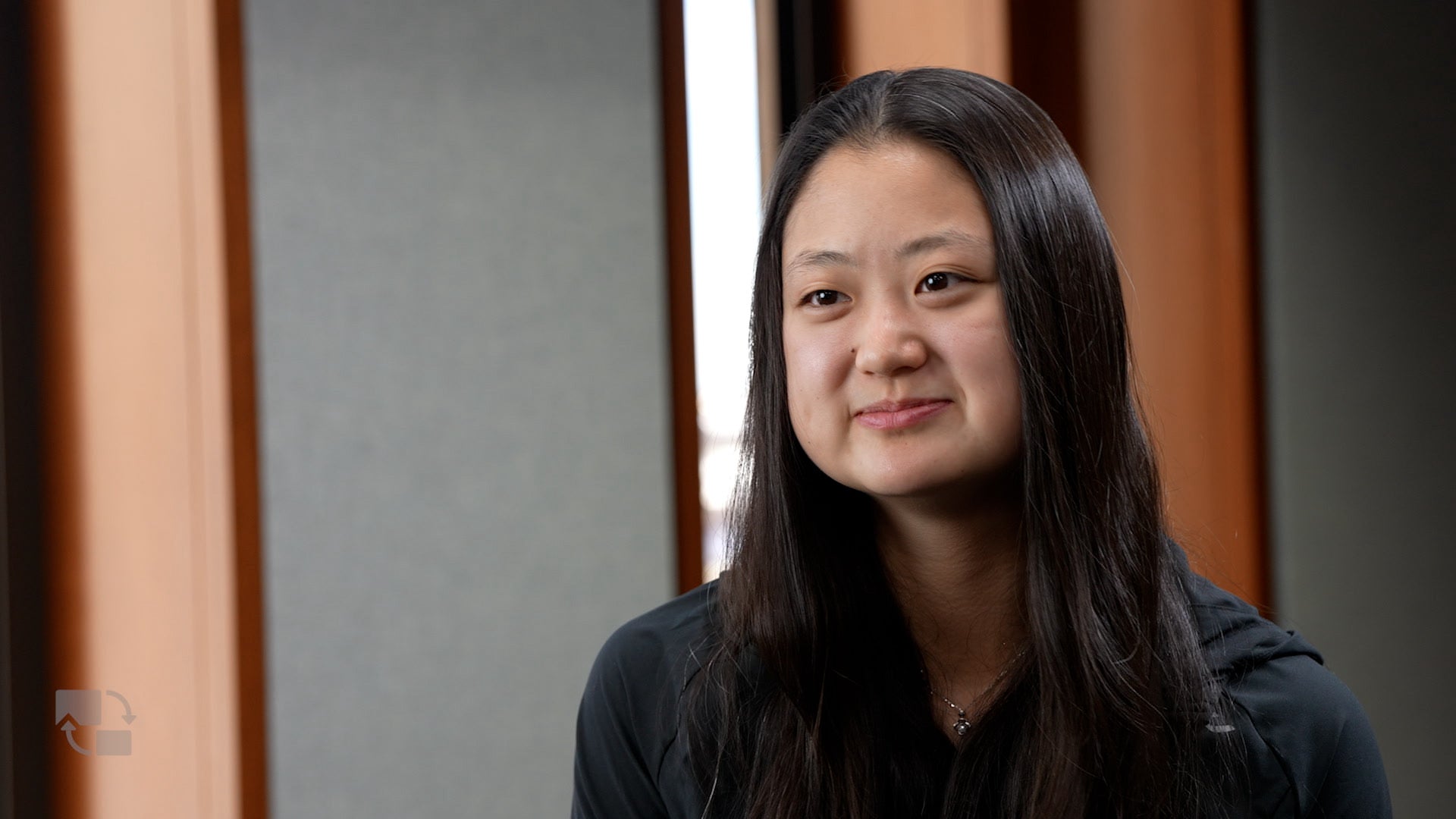Retired Harvard Chan School professors call federal grant cuts a ‘tragedy’

A group of professors who have retired from Harvard T.H. Chan School of Public Health are speaking out against the federal government’s cancellation of all research grants to Harvard University and the impact the move will have on public health in the U.S. and globally.
More than 20 retired professors signed a “statement of solidarity and concern” in the wake of the cuts, which affected roughly 200 grants for about 140 scientists at Harvard Chan School.
“The cancellation of federal funding to HSPH is not only a tragedy for our colleagues and their staff and students, but it will also prove to be a tragedy for the health of our fellow citizens,” wrote the professors in a statement shared with School administrators. The statement listed a dozen fundamental discoveries that came from experts at the School, such as the finding that fine particles in pollution cause not only lung diseases but also heart disease and strokes, the elucidation of risk factors for cancers and heart disease, and foundational nutrition studies that define healthy eating.
The professors also noted that these discoveries and others were made possible because of the partnership between Harvard Chan School and federal agencies such as the National Institutes of Health. For more than 70 years, they wrote, “this system has driven research excellence in our country and set the global standard in public health and the medical sciences.”
One of the signatories was David Hunter, Vincent L. Gregory Professor of Cancer Prevention, Emeritus, and former acting dean and dean for academic affairs. Hunter, who currently serves as Richard Doll Professor of Epidemiology and Medicine at the University of Oxford, noted in an email that the partnership between the federal government and universities has enabled the government to tap the best minds in areas of research deemed critical to the U.S. He added that while some may view these grants as automatic or “gifts, they are not. “They are hard-won after an increasingly competitive … selection process,” he said.
The across-the-board cancellation of grants at Harvard, he added, “is supremely wasteful, as the sunk cost of the research that is terminated may not be recoverable, let alone the research careers that are truncated and young scientists who are discouraged from pursuing careers in public health research.” Hunter and the other signatories called the grant cuts “counterproductive” and said that they are “doing irreparable harm to public health in the U.S. and internationally for generations to come.”
Other retired professors who signed the statement include Hans-Olov Adami, Barry Bloom, James Butler, Douglas Dockery, Felton James Earls, Myron Essex, Jeffrey Fredberg, Steve Gortmaker, Victor De Gruttola, David Harrington, William Hsiao, Nancy Kane, Ana Langer, Tun-hou Lee, Michael Reich, Rima Rudd, Katherine Swartz, Alec Walker, Milton Weinstein, and Daniel Wikler.
Last Updated
Featured in this article
The Fight for Eating Disorder Funding Continues

A new STAT News article highlights concerns from STRIPED’s Ariel Beccia and other experts about the continued exclusion of eating disorders from national chronic disease priorities. Despite their high mortality rate and growing prevalence—especially among youth—eating disorders remain underfunded and overlooked in federal health initiatives. Read the article to learn more.
Last Updated
We are Harvard researchers. Trump’s cuts are endangering lives
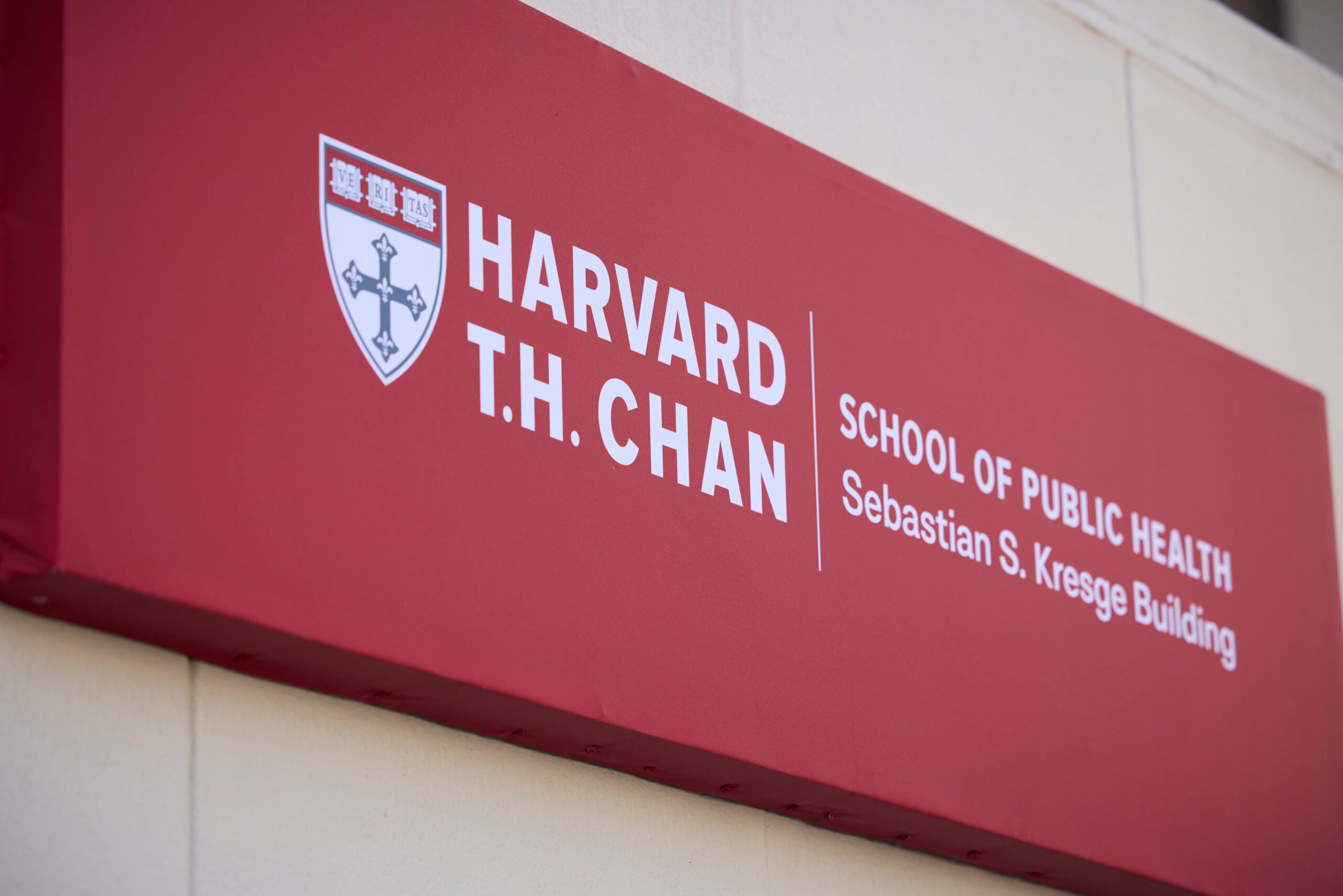
Last Updated
Exciting new publication from Aditya Bandekar
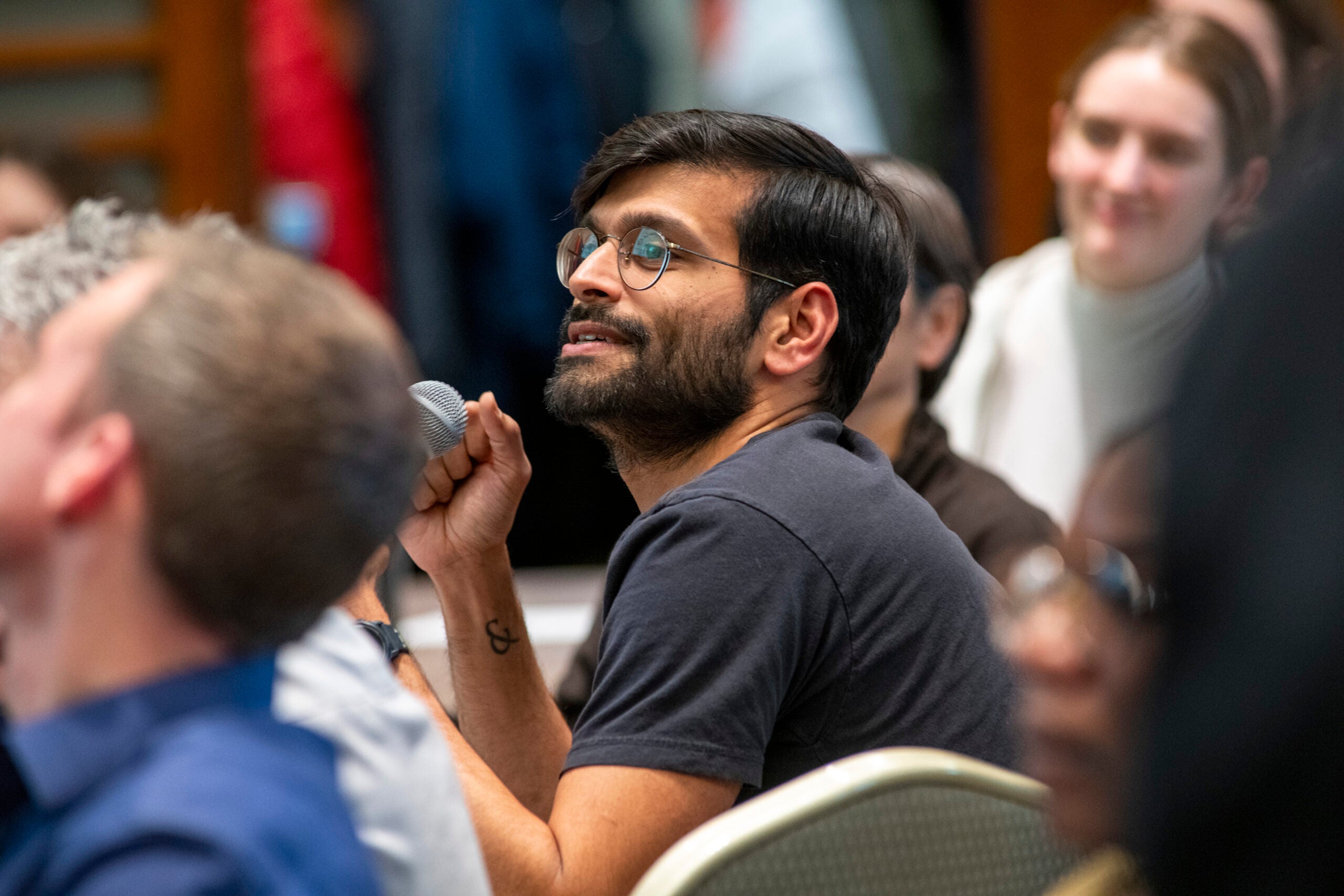
In May, Aditya Bandekar published the fantastic article Axial asymmetry organizes division plane orthogonality in Neisseria gonorrhoeae in Current Biology. It describes the spatiotemporal aspects of gonococcal cell proliferation – highlighting the importance of cell morphology in determining the fidelity of chromosome segregation and cell division. Grad Lab members Samantha Palace, Yi Wang, and Yonatan Grad also contributed.
The paper received the following commentary from Kyung-Tae Park and Thomas Bartlett: Bacterial cell division: Orthogonal rotation is a convergent strategy. Great work, Adi!
Last Updated
A mid-career pivot from corporate life to public health entrepreneurship

Zeenith Ebrahim, DrPH ’25, launched Jamii Life in South Africa to increase access to affordable home care and create jobs.
Zeenith Ebrahim spent her DrPH program honing the skills to grow her social venture Jamii Life, a South Africa-based home health care company that’s empowering care workers with tools and training to improve the quality of home-based care and harnessing technology to help keep its services accessible and affordable. She left a successful corporate career seven years ago to explore public health entrepreneurship and graduated from Harvard T.H. Chan School of Public Health this month committed to making a difference.
“I want a world where everyone who needs access to home care can have it, regardless of their socioeconomic status,” she said. “And where the people who provide that care are paid a living wage and respected for the crucial role they play in society.”
Jamii Life’s home care workers provide support with a range of tasks from bathing and household help to vitals checks and wound care. They track details about patients’ health outcomes and emotional well-being and keep doctors and family members informed. Over the past five years, Ebrahim has grown her team to 14, trained 92 care workers, and helped many others gain home care working skills through the company’s training program.
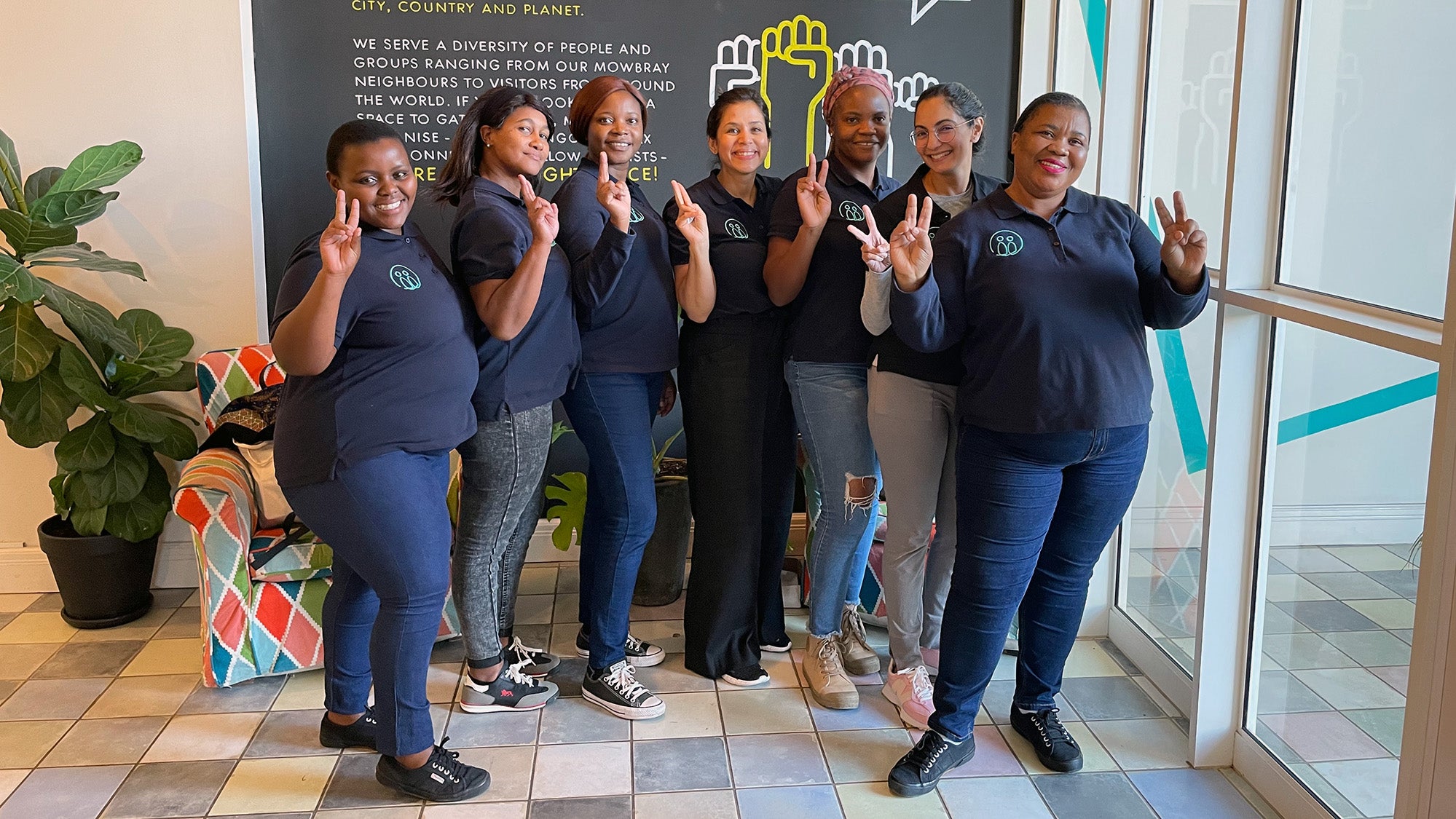
For Ebrahim, Jamii Life’s mission is deeply personal. Growing up in Cape Town, South Africa, she was surrounded by an extended village of caregivers—including her grandmother, who watched her and her siblings while her mother was at her teaching job. When her grandmother had a stroke and became bedridden, Ebrahim’s family could not afford to hire help, so they cared for her themselves. The experience opened her eyes to the urgent need for more home care options.
“Finding ways to contribute to my community has been the through-line in my career,” Ebrahim said. After studying business at the University of Cape Town and Oxford University, she spent more than a decade in leadership roles at General Electric in South Africa, working on transportation projects and helping enable access to health technology across the continent.
Although it was rewarding to work on improving infrastructure, she found herself wanting to do something to help people more directly—especially after her grandmother passed away in 2016. Two years later, she stepped away from her career to go back to school and start developing the concept for what would become Jamii Life.
‘Just me and my ideas’
In 2018 she was awarded a South Africa Fellowship and was accepted into the mid-career MPA program at Harvard Kennedy School (HKS). Later that academic year, Ebrahim was also awarded a Cheng Fellowship from the New World Social Innovation Fellows Program, based at HKS. Through this platform, she received mentorship, seed funding, and the support of her Cheng Fellowship cohort to develop Jamii Life. After she graduated in 2019, she won the Skoll Early Venture Award from Oxford University, was recognized as an Echoing Green Fellow and MIT Solver.
Returning to South Africa, Ebrahim dived into developing Jamii Life’s training program and technology platform. By February 2020, she had recruited 10 caregivers—and then, a month later, COVID-19 shut everything down.
Even without the pandemic’s disruptions, it was a challenging time for Ebrahim. “In the corporate world I had a title and a team, but now it was just me and my ideas,” she said. She eventually started piecing together a new temporary program—training family members and others who lived with people who needed care. But she realized that to grow the company long-term, she needed additional skills and resources. She applied to Harvard Chan School, she said, hoping to gain space to learn and be curious about health and social care, and access to a community of innovators.
Finding her voice
When she started her DrPH program in 2020, Ebrahim said, “I designed my program around moving Jamii Life forward. The School gave me the scaffolding to do that and was an extremely nurturing place.” She received funding for her education through a Margaret McNamara Memorial Fund Fellowship and a Prajna Fellowship.
Ebrahim’s doctoral project focused on how public and private sectors can collaborate to create and sustain care work in South Africa. “That helped me understand the broader landscape and the limitations that care workers face,” she said.
Being at the School proved to be personally transformative, she said. For example, Ebrahim had always found fundraising challenging and took to heart advice she received through her program. A fellow student suggested that she think of fundraising not as asking for money for herself but for her community. And a mentor challenged her by asking why she deserved her spot at Harvard if she wasn’t going to make the most of it. She said that these comments made her realize that just having talent wouldn’t be enough to make her venture successful—she had to find the courage to seize opportunities and ask for what she needed.
She loved serving as a resident adviser at Shattuck International House, which houses Harvard Chan students, an experience that helped her become more social. “I really need community but I’m an introvert,” she said. “In this role, I arranged social events, which I might not have had the courage to do. It was a great way to meet people, and it really made Boston feel like home.”
As Ebrahim’s time at Harvard comes to a close, she recalled the goals she had when she started at HKS seven years ago. “I said that I came to find my voice. At that point, I was in a senior role and had a corporate voice, but not my own,” she said. “Finding it has been an important part of my development as a leader and I’m very grateful.”
Quick hits
Favorite way to unwind: Cooking and eating. There is a lovely vegan chocolate brownie that I really like to make. Cooking is how I show love; it’s how my mother and grandmother show love. Seeing people I love enjoying a meal is one of my favorite things.
Something people might not know about me: I really like design. I can spend hours on a presentation or on deciding where to put things on the walls of my apartment. If I were not doing this work, I would probably be doing some sort of interior design.
A TV show and book I like to recommend: The Two Popes. It’s one of my favorite shows that I’ve watched in a long time and it felt particularly important given Pope Francis’ recent passing. For a book, I’d recommend Unreasonable Hospitality: The Remarkable Power of Giving People More Than They Expect. It’s written by a restaurant owner and is about how to treat people in the service industry, but I believe its relevant across all industries, even the care economy.
Last Updated
Congrats to new Grad Lab PhD Candidates!
Huge congratulations to PhD students Maddy Kline, Bailey Bowcutt, and Eric Neubauer Vickers on passing their qualifying exams this spring! We’re very proud of our now-official PhD candidates and excited to see where their research takes them.
Last Updated
Celebrating Alli Probst: A New Chapter in Public Health
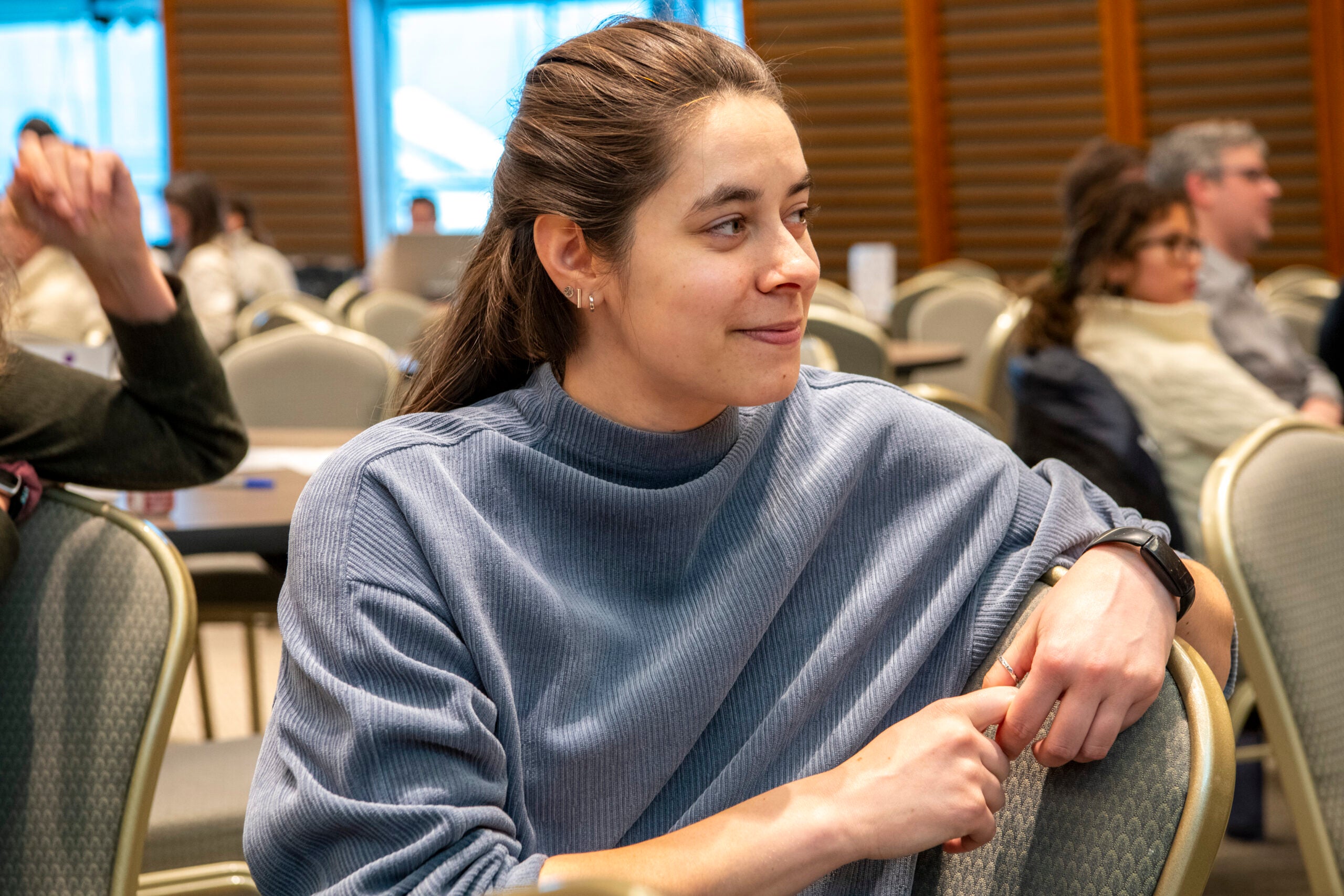
“When I applied to PhD programs, the BPH program fit my research interests. I’m surrounded by people who are focused on public health for everyone, and that motivation ends up informing the basic biology research that I do.”
Reflecting on her academic journey that eventually brought her to The Harvard Chan School’s Biological Sciences in Public Health (BPH) program, soon-to-be PhD graduate Alli Probst shares how she approached her PhD project, the impact her groundbreaking research on malaria transmission has had within the field of public health, and what her post-graduation plans include. On Wednesday, May 28th, IID and the rest of the Chan School celebrated all of Alli’s insights, successes, and contributions throughout her time in the BPH program during this year’s Convocation Ceremony!
We’re proud to honor Alli’s accomplishments and excited to continue supporting her as she takes on new challenges and becomes a leader in the fight for global health.
To dive deeper into Alli’s inspiring research and discover her next steps after Harvard, check out her full story: New approach to preventing malaria transmission holds promise
Last Updated
Carbohydrate quality in midlife matters for women’s healthy aging

The research described in this article was made possible in part by federal funding awarded to Harvard Chan School scientists in the interest of protecting and promoting health for all. The future of research like this is now in question due to the government’s actions to terminate large numbers of grants and contracts and freeze funding for scientific inquiry and innovation across Harvard University.
Women who ate diets rich in high-quality carbohydrates—including fruits and vegetables, whole grains, and legumes—were more likely to stay healthy as they aged than those who did not, according to a recent study led by researchers from the Jean Mayer USDA Human Nutrition Research Center on Aging at Tufts University and Harvard T.H. Chan School of Public Health. The researchers also found that eating diets high in low-quality carbohydrates, such as added sugar, refined grains, and potatoes, lowered women’s odds of staying healthy as they aged.
The study, published May 16 in JAMA Network Open, defined healthy aging as staying free from 11 major chronic diseases including cancer, Type 2 diabetes, and heart failure, lacking cognitive and physical function impairments, and maintaining good mental health.
The researchers used health data from more than 47,000 women participating in the Nurses’ Health Study between 1984 and 2016.
“Our results are consistent with other evidence linking consumption of fruits and vegetables, whole grains, and legumes with lower risks of chronic diseases, and now we see the association with physical and cognitive function outcomes,” said senior author Qi Sun, associate professor in the departments of nutrition and epidemiology at Harvard Chan School, in a Tufts University press release.
A May 16 Fortune Well article noted that the study centered on sources of fiber in the diet, which dietitians generally recommend as a better option than fiber supplements.
Read the Fortune Well article: Eating these carbs can help boost healthy aging, according to a 30-year study
Last Updated
Featured in this article
Healthcare, cities, and climate change: Challenges and opportunities

Cities and health care systems can protect residents and patients when they collaborate on climate resilience plans.
Health care institutions serve on the frontlines of climate and health surveillance, preparedness, and response, while urban policymakers and planners play an essential role in creating climate-ready communities, infrastructure, and policies. Although these entities often work in silos, they can strengthen climate resilience and improve health in their communities by collaborating on strategies to achieve climate readiness.
In this article published by the Journal of City Climate Policy and Economy, Harvard Chan C-CHANGE faculty member Caleb Dresser and Harvard Chan School student Neil Singh Bedi outline the impacts of climate change on health care systems and cities and opportunities for health care and city leaders to work together on climate solutions that improve health.
What is a city’s role in supporting health and health care?
Healthcare institutions depend on cities for electricity, water, communications, transportation, and workforce. Actions cities can take include:
- Improving infrastructure for electricity, water, and communications to keep health care facilities up and running during extreme weather disasters.
- Considering the locations of health care facilities, prioritizing neighborhoods with populations most vulnerable to climate hazards.
- Preventing infectious diseases by removing standing water and investing in stormwater management systems that can withstand increases in flood risk.
- Investing in transportation infrastructure to ensure a clear, safe path for patients, supplies, and the health care workforce to arrive safely to health care facilities.
- Ameliorating climate hazards through architecture and urban design by creating “cool blocks” to reduce urban heat islands with storm-resistant housing, urban greenspace, and cool roofs and “sponge cities” to manage stormwater.
- Leveraging housing policy as a health intervention: Zoning and permitting could help make homes resilient to extreme heat and storms to better protect vulnerable residents.
What is health care’s role in a climate-ready city?
Facilities can become resources—rather than liabilities—during climate-related disasters and can proactively initiate programs to prevent hazard-related illnesses and maintain access to care. Actions health care systems take can include:
- Supporting community members during disasters, for instance by allowing people to refrigerate medications or charge medical devices during blackouts
- Investing in the local economy by purchasing from local suppliers with climate-friendly business practices
- Fostering long-term partnerships with community organizations to support patients with counseling, equipment like AC units, or subsidized power to run them
- Transforming facilities into resilient assets, becoming resources rather than liabilities during climate-related crises. For example, by offering a safe location during disasters and providing preparedness training, distributing resources, and connecting vulnerable individuals with relevant services.
- Preplanning temporary outpatient services at alternate sites to address time-sensitive health care access needs ranging from radiation therapy to prescription refills for displaced patients.
What is the role of data in city/health care system collaborations?
Data sharing, while challenging, presents an increasingly important opportunity for both cities and health care systems.
- Health care systems collect data that can detect emerging health problems, identify vulnerable populations, and measure health outcomes.
- City governments invest in data on hazards, infrastructure, housing, industry, and social and economic patterns of city residents that could inform health facility resilience planning and patient care.
- A well-designed data-sharing mechanism that addresses legal, financial, and privacy concerns can enhance individual care, improve institutional readiness and disease surveillance, inform public health action, guide investments for adaptation, and save lives during disasters.
Summary for policymakers
- Climate change affects health and health care systems in ways that include healthcare utilization and disruption of health care delivery.
- Health care systems can support cities and their residents through direct patient care, counseling, advocacy, education, and as anchor institutions.
- Climate-smart investments in urban infrastructure can reduce health risks and support access to health care. Essential utilities, stormwater management, transportation, housing, and other municipal services are important influencers of health.
- Health care systems and cities are interdependent. Strategies to achieve climate readiness should be developed collaboratively. Approaches ranging from investments in urban infrastructure to proactive, data-driven engagement with medically complex patients in at-risk neighborhoods are possible.
- Data sharing is an increasingly important bidirectional opportunity. City public health departments rely on healthcare data to understand their communities’ health status; hospitals need information on anticipated hazards and resources for their patients.
- Aligning health care systems and cities to tackle climate change is an important challenge. Climate adaptation, mitigation, and resilience efforts can be strengthened through collaborative communication, stakeholder engagement, needs assessments, prioritization, and iterative improvement.
Last Updated
Documenting grant cancellations that represent ‘a life’s worth of work’

Over the past several months, the federal government has terminated roughly 2,100 National Institutes of Health (NIH) research grants worth around $9.5 billion. One of the most detailed accounts of those grant terminations has been produced by Harvard T.H. Chan School of Public Health’s Scott Delaney.
Delaney, a research scientist in the Department of Environmental Health, has been working since March with computational researcher Noam Ross to create the Grant Watch database, combining government information with crowdsourced submissions to track both NIH and National Science Foundation grant terminations. In a May 27 STAT Q&A, Delaney discussed his efforts to document the grant terminations. He also talked about what it was like to learn in mid-May that hundreds of federal grants at Harvard had been axed—including those supporting his own research on how climate change can exacerbate Alzheimer’s disease and Parkinson’s.
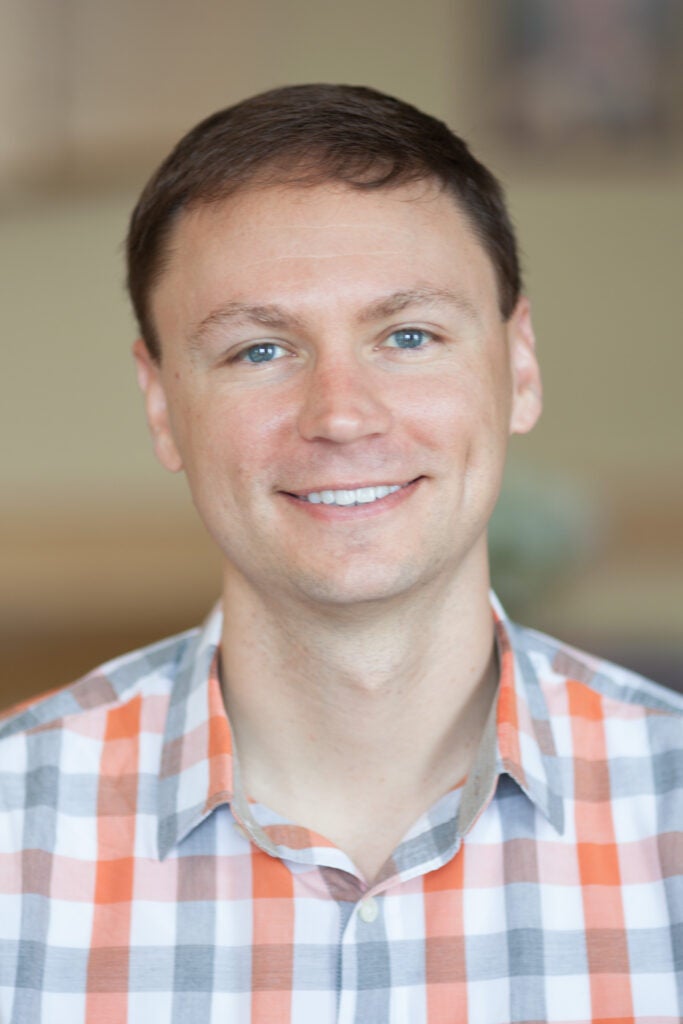
Delaney explained that, as NIH grant terminations began in March, he couldn’t find much information about the moves. “My first thought was, ‘This is surely illegal,’ but it’s going to be really hard to file a lawsuit if we don’t have a record of what’s happened,” said Delaney, who is also a lawyer. That concern prompted him to start the Grant Watch database. The group’s goal is to continue to curate a common factual record, “because the government has taken steps that obscure that record,” he said.
A separate project—called the Science & Community Impacts Mapping Project (SCIMaP)—is now making use of Grant Watch’s list of terminated grants. SCIMaP is an effort from an interdisciplinary, multi-university team of researchers aimed at showing how cuts in federal research funding are impacting science, the economy, and healthcare.
Delaney told STAT that even though the government had frozen payments on Harvard’s NIH grants in April, the terminations on May 15 still came as a shock. “A freeze always felt temporary, whereas the terminations felt in some sense final,” he said. “I just had to take some time away, get outside. On my colleagues, it had a really, really, really profound impact, and was extremely demoralizing.”
However, he added, he thinks that people are now ready to fight back. “These grants are the manifestations of a life’s worth of work,” he said.
Read the STAT article: A Harvard scientist built a database of 2,100 NIH grant terminations. Then his own funding was cut
Learn more
Funding cuts create ‘existential crisis’ at Harvard Chan School (Harvard Chan School news)
